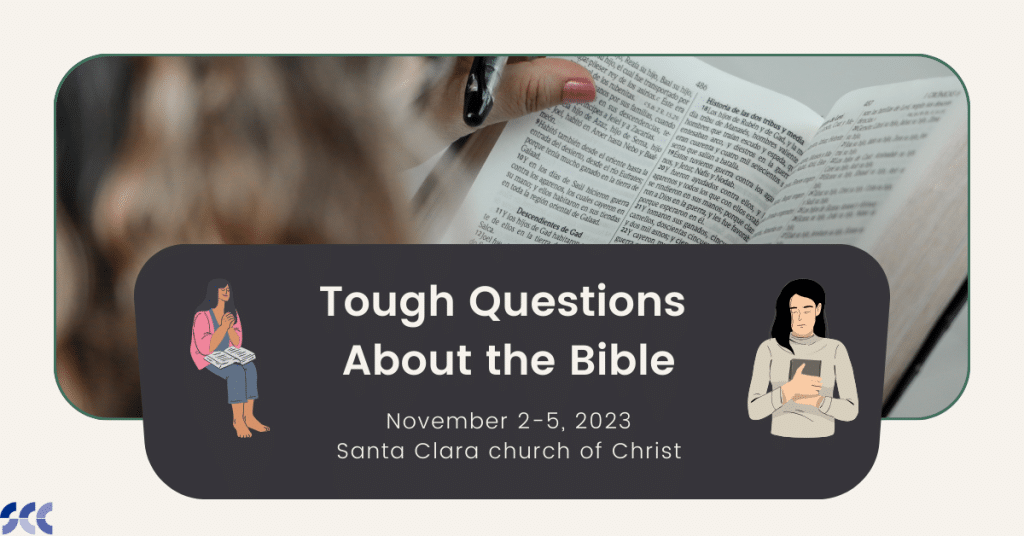As we bring these studies to a close, the situation at present can be summarized as “Better Information – Better Access – Better Reasons to Believe.”
We Have Better Information
We live in a post-Christian era in which anything “Biblical” is attacked or dismissed without a fair hearing by many people. This is ironic because we have better information than we have ever had.
In recent decades more Biblical manuscripts have been discovered, and stunning archaeological discoveries have provided a better framework for understanding the sacred text. Not only so, but an explosion of information is available to most people on the Internet.
We Have Better Access
The privilege of access is not limited to specialists. Amazing tools are available to virtually anybody. This includes:
- Digital study tools on platforms such as Logos Bible Software of Biblesoft (PC Study Bible, Mac Study Bible, and Biblesoft App for the Cloud). Using computer-driven Bible software, I am able to find better information in a few minutes than what I found in hours (or even days) of painstaking research when I first started preaching.
- Helpful online resources. There are literally hundreds of user-friendly websites, jam- packed full of good information. A few are listed at the end of this blog post.
- Better translations than ever before. Wikipedia says, “As of October 2017 the full Bible has been translated into 670 languages, the New Testament alone into 1521 languages and Bible portions or stories into 1121 other languages. Thus at least some portion of the Bible has been translated into 3,312 languages.”
There are reportedly over 300 translations of the Bible in English. A few of the better ones are the following:
- English Standard Version (ESV). 2001, latest revision 2016. With an “essentially literal” translation philosophy, produced by a top-notch team of scholars, and generally rendered into beautiful English, this is the author’s personal favorite.
- New American Standard (NASB). 1971, updated 1995. Mostly faithful to the original text (as a literal rendering) yet highly readable in English, this is my second-favorite.
- New English Translation (NET). 2006, with a 2017 update. A version that promotes its online presence but is also available in print, this is a pretty good translation with extensive and insightful translators’ notes.
- Holman Christian Standard Bible (HCSB) 2004. This version, produced by conservative scholars, seeks to achieve a balance between “formal equivalence” (literal word for word) and “dynamic or functional equivalence” (thought for thought). The goal was “to convey a sense of the original text with as much clarity as possible.”
There are of course many other choices. The New King James Version (NKJV) is generally good but not based on the best or oldest manuscripts. The New International Version (NIV) is still very popular, especially in Evangelical circles, but is somewhat less literal and at least slightly Calvinistic-leaning. I would advise avoiding The Living Bible (TLB), which is more of a paraphrase version than a formal translation.
We Have Better Reasons to Believe
The interplay that the average person can have with the sacred text has never been better. With the explosion of information, and the user-friendly availability of Bible-related materials on the Internet, the case for God, Jesus Christ, and the Bible are as strong as ever.
The key involves the degree of spiritual hunger (or lack thereof) motivating each person to embark on a search for truth. Consider carefully the words of our Savior:
- “You search the Scriptures because you think that in them you have eternal life; and it is they that bear witness about me” (Jn. 5:39).
- “If anyone’s will is to do God’s will, he will know whether the teaching is from God or whether I am speaking on my own authority” (Jn. 7:17).
- “I am the way, and the truth, and the life. No one comes to the Father except through me” (Jn. 14:6).
- “Blessed are those who hunger and thirst for righteousness, for they shall be satisfied” (Mt. 5:6).
- “No one can come to me unless the Father who sent me draws him. And I will raise him up on the last day. It is written in the Prophets, ‘And they will all be taught by God.’ Everyone who has heard and learned from the Father comes to me” (Jn. 6:44-45).



